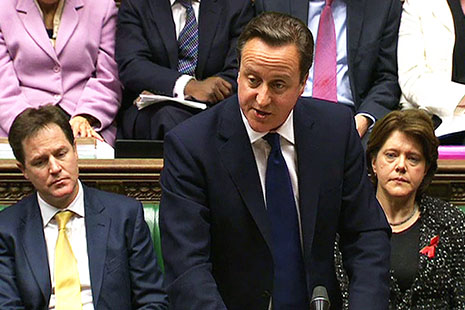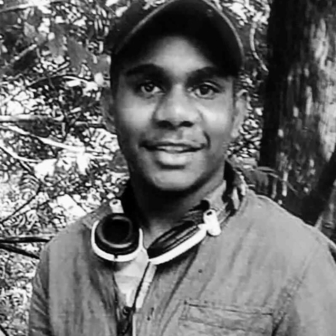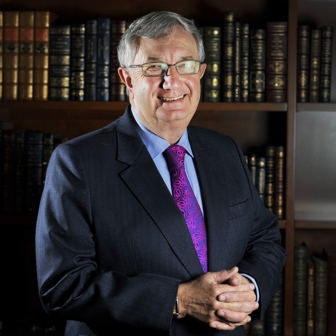TWO decades ago, David Mellor, a minister in John Major’s Conservative government in Britain, memorably said that “the tabloids are now drinking in the Last Chance Saloon.” At the time, amid a clamour set off by a series of abuses by the tabloid press, a committee under Lord Calcutt was considering whether to recommend a privacy law. The Sun, for instance, had blithely broken an unspoken taboo by publishing a photo of a rape victim on its front page. A TV presenter, Russell Harty, who had never tried to hide his homosexuality, had been outed by the News of the World; when he became sick, the tabloids wrongly convinced themselves he was dying of AIDS, sought to steal his medical records, and trained their cameras on his hospital bed from a flat across the street.
The tabloids rose to Mellor’s challenge by exposing the fact that he was having an affair with an actress. It would have been a Sunday People exclusive, but the rival News of the World was bribing one of the paper’s staff to leak them the stories it was working on. Soon after, it was also revealed that Mellor had accepted a free holiday without declaring it, and he was forced to resign. The Sun headlined his departure as “Toe Job to No Job.”
Calcutt recommended a privacy law, but instead the government agreed with the press and allowed it to bring in a new model of self-regulation, the Press Complaints Commission, or PCC. Mellor passed into political history, and so did his warning. In January 2009, Britain’s newspaper editors made a submission to the Commons media committee which argued that there was “no doubt” that standards of reporting had been “raised markedly since the PCC and [Editors’] Code were established in 1991.” It went on: “Self-regulation has inculcated within our industry a culture of correcting inaccuracies and other breaches of the Code speedily and effectively.”
Even that group of editors – never slow to congratulate themselves – would now find such praise of their own industry delusional. At the height of the phone-hacking scandals, when the misdeeds of the News of the World were dominating British media and politics, prime minister David Cameron commissioned Lord Justice Leveson to conduct an inquiry in two parts. First, he asked for recommendations for a new and more effective regulatory regime to support the integrity and freedom of the press; second, he wanted Leveson to examine the extent of unlawful and improper conduct within News International and within the institutions with which it was dealing, including the police and politicians.
Leveson has now delivered the first part of his report, while the second part, looking in detail at News and its web of contacts, is delayed indefinitely. This is unfortunate but necessary. Around ninety people have been arrested in connection with various aspects of the scandal, so Leveson has had to avoid all matters that might touch on future criminal trials, the first of which are scheduled to begin in September 2013. As a result, some of the most interesting questions have not yet been publicly pursued.
Even before the publication of the report, the proceedings of the inquiry had been enormously helpful to British democracy. As Leveson himself says, “In nearly nine months of oral hearings, 337 witnesses gave evidence in person” and the statements of nearly 300 others were read into the evidence. “It has become the most public and the most concentrated look at the press that this country has seen.” Not only were the victims of phone hacking given a public voice but the present and three former prime ministers as well as an array of other politicians were cross-examined under oath, and so – more unusually – were leading figures in the news media, especially from Rupert Murdoch’s News International.
Leveson’s four-volume report is nearly 2000 pages long, and even the executive summary runs to forty-six pages. It is cogently written and closely argued. Its findings on individual matters are a model of precision and restraint. It finds, for instance, that no police officers involved in decisions not to pursue phone-hacking allegations did so because of corruption. The decision to limit prosecutions in the original case in 2006 was “perfectly reasonable,” he says, especially because of the workload that had been created by the terrorist attacks on London. He is more critical of their continuing insistence that their original decision was correct, despite continuing revelations that nothing had changed at the News of the World, and of how their “defensive mindset” and the close relationships between some senior officers and editors at News International facilitated a “series of poor decisions, poorly executed” and contributed to an “entirely understandable” public perception of police partiality and incompetence.
Inquiry participants and Leveson himself often argue that relations between press and police and press and politicians had become “too close” during the years of hacking, but this is not necessarily a helpful way of describing the problem. If there is an unprofessional or improper element to a relationship then this should be specified in precise terms. It’s hard to see how worries about “closeness” can lead to any enforceable regulation; no regulator can measure degrees of intimacy.
LEVESON’s recommendations go considerably further than those of Australia’s Finkelstein inquiry, which sent the press here into a frenzy of misrepresentation. This isn’t surprising. The problems Britain is facing are much larger and more urgent: its tabloid press, specifically the News International titles, manifested systemic corruption, have been guilty of criminality and reckless invasion of privacy on a large scale, and repeatedly showed themselves impervious to moral suasion and lesser sanctions.
Leveson found that the press’s reckless pursuit of stories had “caused real hardship and, on occasion, wreaked havoc with the lives of innocent people whose rights and liberties have been disdained. This is not just the famous but ordinary members of the public, caught up in events (many of them truly tragic) far larger than they could cope with but made much, much worse by press behaviour that, at times, can only be described as outrageous.” Moreover, “there is a cultural tendency within parts of the press vigorously to resist or dismiss complainants almost as a matter of course,” and this approach led to some newspapers “resorting to high volume, extremely personal attacks on those who challenge them.” Endorsing wide criticism of the PCC as a “toothless poodle,” he found that the commission had shown itself to be aligned with the interests of the press rather than the public.
Leveson was “struck by the evidence of journalists who felt that they might be put under pressure to do things that were unethical or against the code.” He therefore suggested that the new body he proposes should “establish a whistle-blowing hotline and encourage its members to ensure that journalists’ contracts include a conscience clause protecting them if they refuse” unethical instructions.
As Leveson notes, his was the seventh inquiry in less than seventy years to address central issues about the role of the press, and on each previous occasion the outcome (though not always the recommendation!) was a system of industry self-regulation. Each time, he concluded, self-regulation had failed to deliver meaningful public accountability.
Leveson wants an independent system of self-regulation, backed by statute, with strong incentives for news organisations to sign up. Editors and news organisation employees would not be members of the adjudicating panel. It would not have any power to prevent publication; instead, its main sanction would be “the power to direct the nature, extent and placement of apologies.” The maximum penalty for serious or systemic breaches of the standards code would be 1 per cent of a news organisation’s turnover, up to a maximum of £1 million.
Within hours of the release of the report, Cameron, who had promised to follow the report’s recommendations as long as they were not “bonkers,” rejected the call for these controls to be backed by statute. “It would mean for the first time we have crossed the Rubicon of writing elements of press regulation into law of the land…” he said. “We should be wary of any legislation that has the potential to infringe free speech and the free press.”
Put to one side the fact that Caesar’s crossing of the Rubicon was the prelude to a very successful campaign, and that the metaphor, although always connoting a point of no return, is usually associated with boldness and courage. As Natalie Fenton and others have pointed out, it is a particularly inaccurate metaphor in the present context. It suggests that there are no restrictions on the press now, even though the European Convention on Human Rights, to which Britain is a signatory, guarantees freedom of the press (while saying this must be balanced by other competing principles) and includes a right to privacy. It also overlooks the extent to which the press is currently subject to a range of laws, from defamation down.
It is breathtaking for parts of the media to use principles of democracy and free speech to defend actions that serve no conceivable public interest, that sometimes severely damage the lives of the people written about, and that trample over their rights. What Britain is dealing with is abusive and unaccountable power, exercised by large corporations against individual citizens. As R.H. Tawney once said, freedom for the pike is death for the minnow.
Cameron’s rhetoric constructs a dichotomy in which the only choice is between unfettered press freedom and tyrannical control by the state. (For the sake of honesty, those cheering Cameron should take account of Leveson’s considered rejection of non-statutory solutions, which he argues would fail the tests of effectiveness and independence from publishers.) The inquiry’s recommendations would enshrine freedom of the press in British law for the first time, and would offer protection and redress to those potentially victimised by the press, but they would do so in a way that is not in any way subject to the wishes of the government of the day.
ONE reason why the Calcutt recommendations about privacy never became law was that John Major was too weak politically to force them through. Conversely, David Cameron has pronounced himself opposed to the Leveson recommendations but may find himself in too weak a position to resist them. He knows that he will receive the unswerving support of the two biggest press groups – Murdoch and Associated – and that they will, in their characteristic way, not only portray him as heroic but also denigrate all those who take a different view. But this may not be sufficient to win.
Cameron’s government is not doing well in the polls. Opinion polls, while affirming that the public wants a free press, show overwhelmingly support for regulation. Seventy-eight per cent of the population wants independent press regulation backed by statute. These findings echo vigorously expressed views especially among the victims of Murdoch’s phone hacking, who are saying they feel betrayed by Cameron’s stance.
Nor will the prime minister’s coalition necessarily fall in behind him on this issue. The deputy prime minister and Liberal Democrat leader, Nick Clegg, has come out strongly in support of the Leveson reforms, as has the Labour leader, Ed Miliband, and a group of Tory backbenchers. For any prime minister the prospect of defeat in the House of Commons concentrates the mind wonderfully. Meanwhile, the countdown to the next election will include regular news from the courts about how close the prime minister has been to figures such as Andy Coulson and Rebekah Brooks. The politics of this issue still has a long way to run. •




